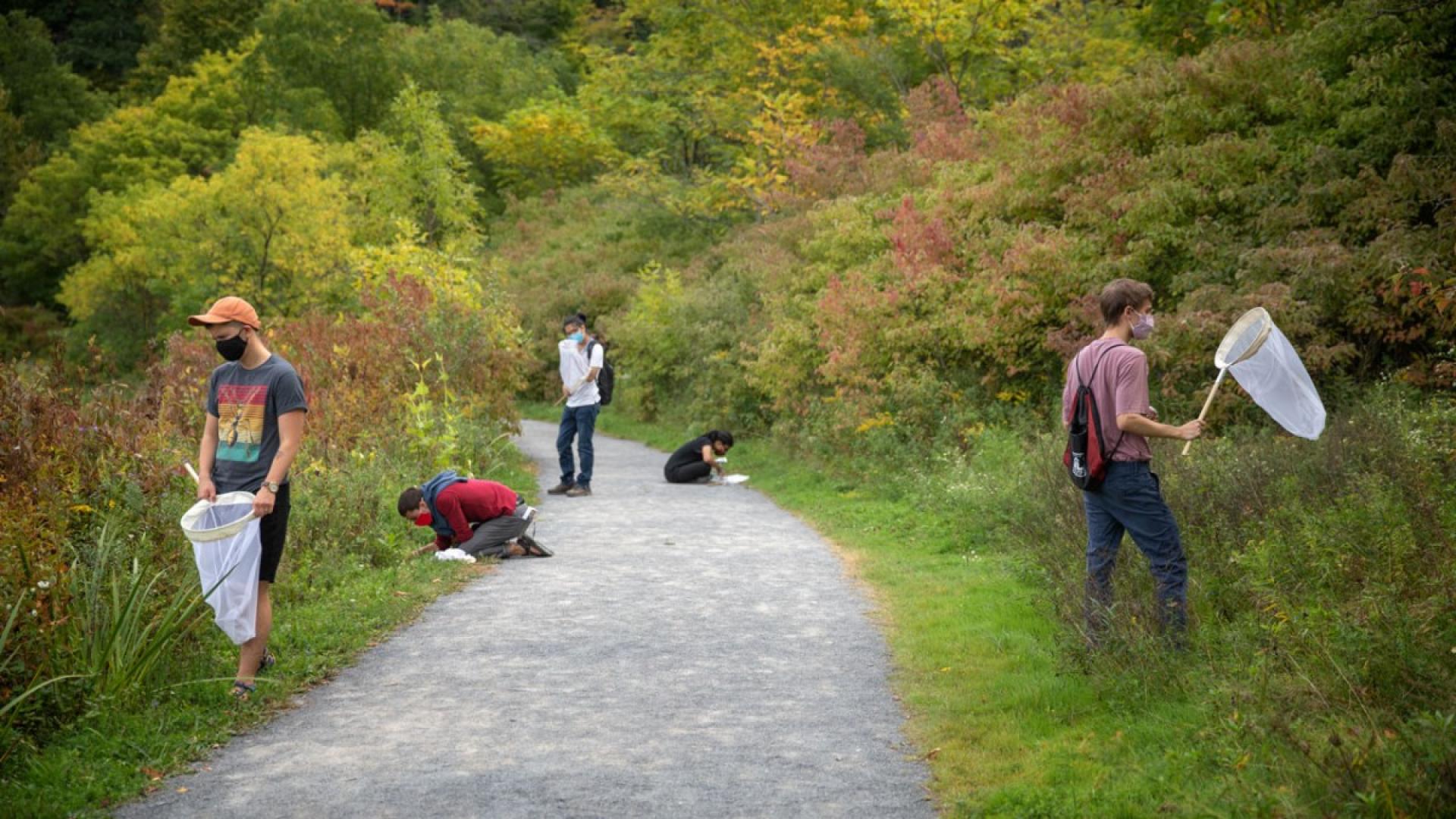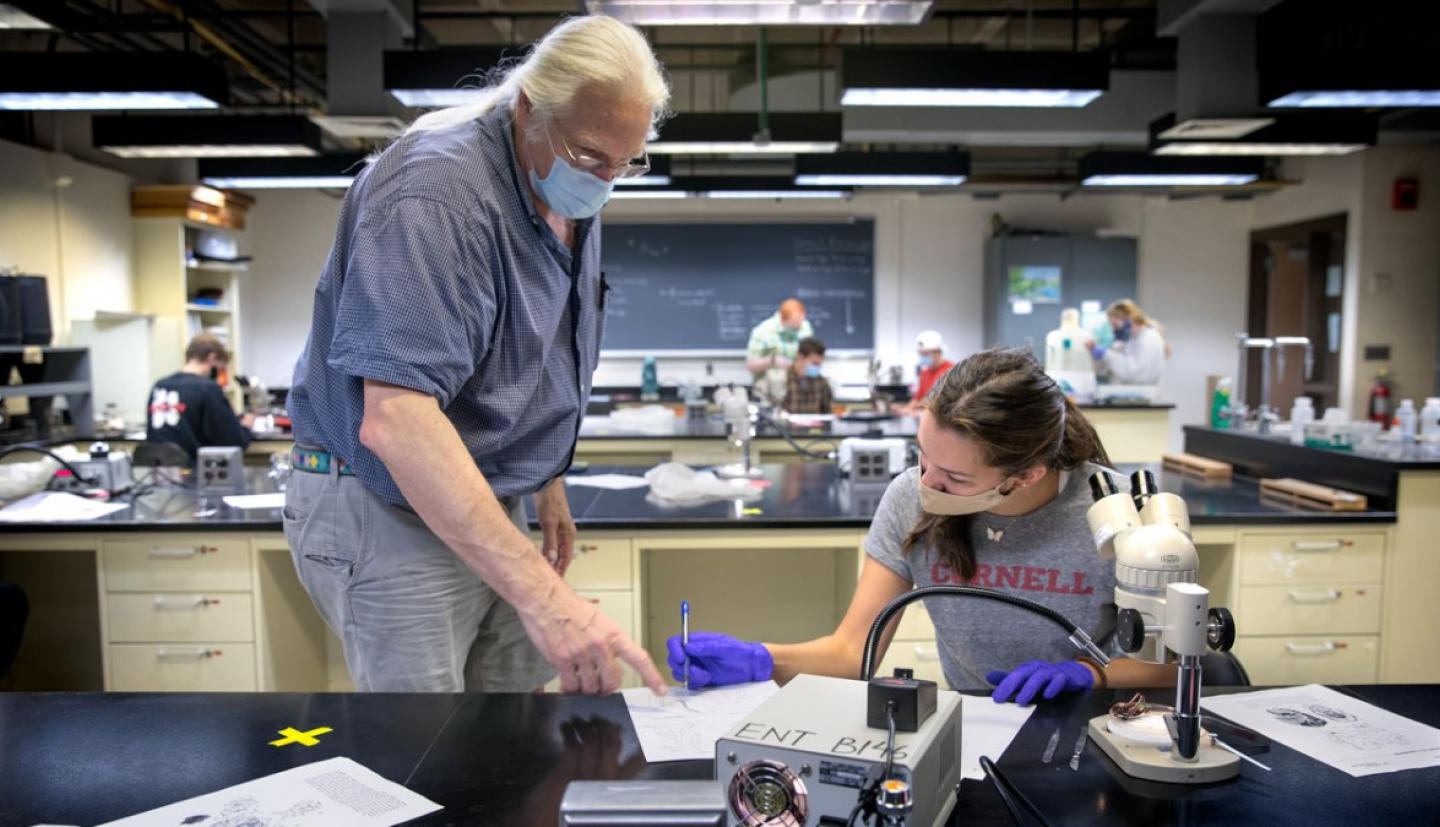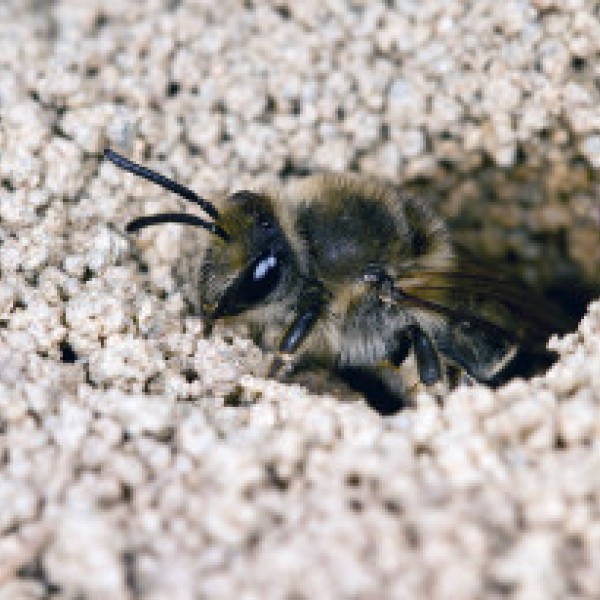She needed alcohol to preserve the soft-bodied insects she’d collected near her home in Missouri, for her entomology class at Cornell. But it wasn’t included in her box of supplies, because alcohol is too flammable to ship. Her local drug store was all sold out.
So at her professor’s suggestion, she asked her father to buy a bottle of 190-proof Everclear instead.
“We don’t drink in my family, and he had never been in the liquor store before,” said Robeck, who is not yet 21. “He came home and said ‘Let’s not get any more. I don’t want to go back.’”
Robeck is one of five virtual students in Insect Biology, in the College of Agriculture and Life Sciences, who received what the instructor calls a “treasure box” of entomologists’ starter supplies. The box included an insect net, killing jar, pins, collection box and inexpensive digital microscopes. While the Ithaca-based students flip over logs in the woods surrounding campus, remote participants – from Missouri to Miami to Mexico – do the same wherever they are.
“The students are being resourceful in a suboptimal situation,” said the instructor, Cole Gilbert, professor of entomology and the Hays and James M. Clark Director of Undergraduate Biology. “And they like the idea that this class requires them to step away from the computer and go outside.”






